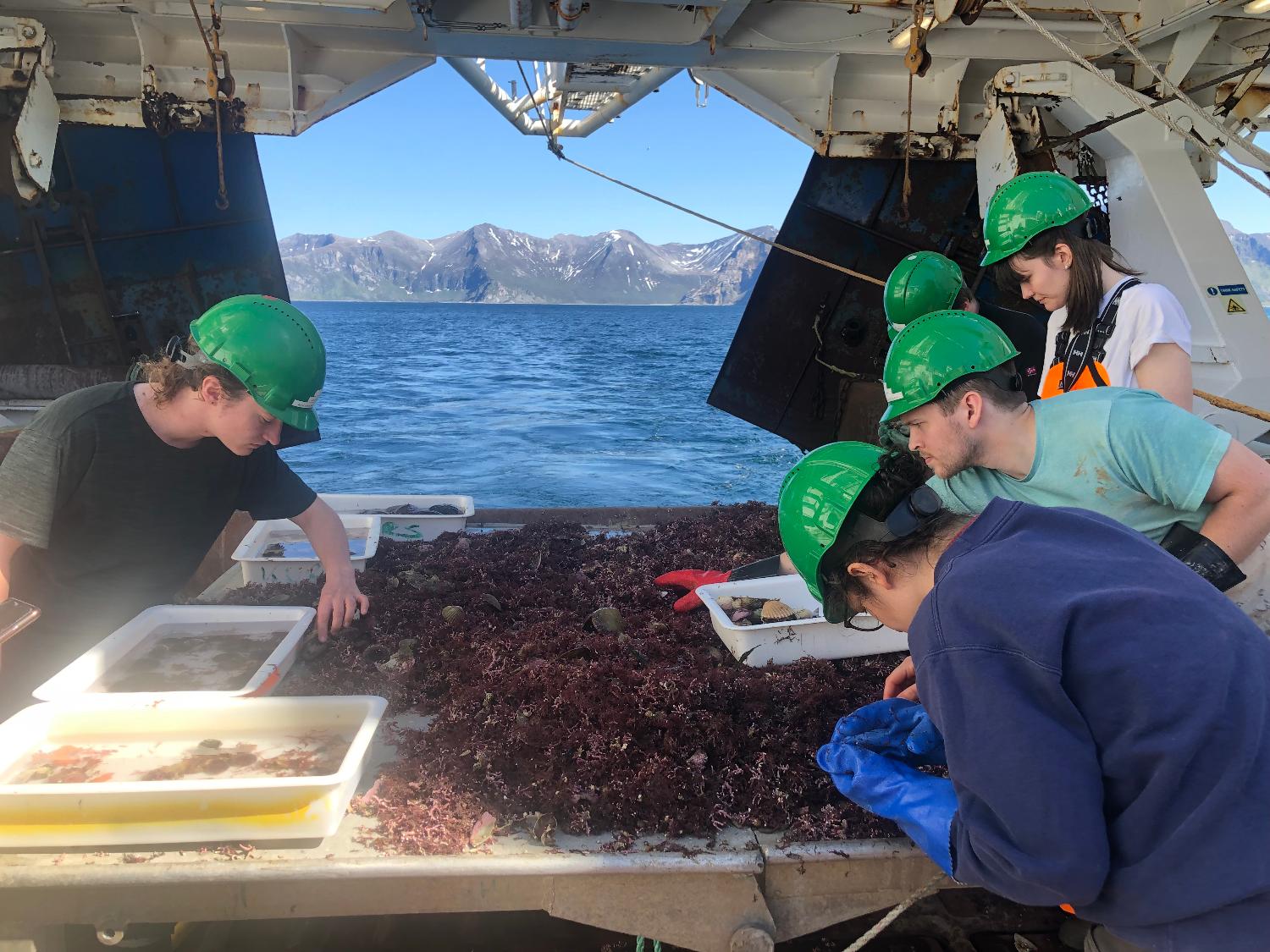The northern seas harbor a wide range of habitats and a multitude of fascinating organisms, some of ecological and some of economic importance. Knowledge about these is important to understand the impacts of a warming climate and enhanced utilization of marine resources. Advanced technology, new sensors, models, and experimental approaches now allow us to investigate the complexity of the marine ecosystem on spatial and temporal scales beyond ship-based expeditions, in fjords and the open ocean as well as in remote Arctic regions. If you are excited about such questions and opportunities, pursue a Master’s in Biology and specialize in Arctic Marine Ecology.
This study programme requires compulsory attendance to the introductory meeting.Admission requires:
- bachelor’s degree (180 ECTS) or an equivalent degree following a programme of study of minimum 3 years.
- a minimum of 80 ECTS in the bachelor's degree must include a specialization in biological topics [i.e., biodiversity (zoology/botany), ecology, cell- and molecular biology, microbiology, physiology (animal/plant), biochemistry and bioinformatics].
- a minimum grade average comparable to a Norwegian C (3,0) in the ECTS scale. The average grade is calcualted from the entire bachelore´s degree.
- proof of English language proficiency. (Applicants with education from non-Nordic countries. You will find more information of English language requirements here.)
Applicants with a degree in Agricultural, Fisheries and Aquaculture studies, Biomedical laboratory sciences ("Bioingeniør"), or Bachelor of Pharmacy, Medicine or Dentistry do not fulfil the admission requirements.
How to apply for admission to UiT? Read more here
Non-EU students must be prepared to pay tuition fees, more information here
Non-EU/EEA applicants: 2078
EU/EEA + Swiss applicants: 7112
Nordic applicants: 6022
Program description
The ecology of high-latitude coastal and oceanic systems is the focus of this specialization. Polar marine ecosystems, their unique characteristics, and their functioning will be explored. The structure of food webs in various Arctic marine habitats will be examined, along with the requirements for their sustainable use and the influence of the physical environment on species and their ecology. Through a master’s in Arctic Marine Ecology, a wide variety of organisms, ranging from bacteria and plankton to benthos and top predators such as fish and marine mammals, will be introduced. Arctic marine food webs across the entire Arctic can be compared, and the responses of organisms and ecosystems to climate change and environmental variation can be studied.
Students will be an integral part of the Arctic Marine System Ecology (AMSE) Research Group and are expected to participate actively.
Learning outcomes
The specialization Arctic Marine Ecology provides you with advanced knowledge within aspects of Arctic marine system ecology. You will understand how organisms respond to biotic and abiotic factors, the dynamics of primary and secondary production in high-latitude marine ecosystems, the role of trophic interactions in regulating communities and marine food webs, and the functioning of biogeochemical cycles like the carbon cycle in Arctic systems.
You will learn about study designs relevant in marine environments, and critically reflect on the approaches benefits and limitations. You will be able to evaluate diverse information sources and apply your knowledge to societal issues such as marine resource management and pollution control.
Job prospectives
The Master’s degree in Biology will allow you to qualify for different career paths and prepare you to step into a professional role or to apply for a PhD.
A Master of Science degree in Biology will prepare you for a wide range of jobs, in both public and private sectors, including research, resource and nature management, administration, consulting and the teaching profession.
The master thesis can play an important role to establish your domain of expertise and to showcase acquired technical and soft skills. Also, it can be very important in building scientific and professional network, that will be a support in your future job search.
Degree Name
Master's of Science in Biology.Access to further studies
On successful completion of the degree programme, students may be qualified for admission to a PhD-programme in Biology at the UiT or elsewhere.
Related professions
Study plan
Language of instruction
The language of instruction and all syllabus material is English.
Teaching and assessment
Several teaching and assessment methods are employed, including lectures, seminars, laboratory work, computer lab and field courses. These will vary from course to course.
Course examinations may be oral or written examinations, assessments of project work/ lab reports/field reports, often in combination.
Supervision of the project work that leads to the writing of the Master`s thesis will be given by faculty staff, sometimes in co-operation with an external supervisor.
Students can undertake periods of studying at The University Centre at Svalbard (UNIS).
International exchange during an entire semester is not possible in the first year of studies due to obligatory courses.
Stays abroad can take place as part of a master project in the third and fourth semester. Please consult the program study advisor for more information.


